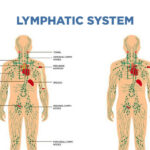6 ways getting more sleep can improve your health

Our bodies need sleep just as much as they need food, water and air. Sleep plays a critical role in our well-being and overall health, and a sleepless night can lead to more serious consequences than a bad mood, concentration problems or sleepy eyes in the morning.
To understand how important it is to have a good sleep hygiene and to go to bed early enough to allow your body to fully recover, take a look at the health benefits of sleep listed below.
1. Getting enough sleep regulates hormones and helps maintain a healthy weight
Insufficient sleep affects your body’s ability to regulate and use glucose for energy production, so if you’re constantly skipping sleep hours, you could be at higher risk for diabetes type 2 and weight gain.
Reducing the number of hours you sleep from 8 to 4 hours per night can result in changes in glucose tolerance and in your metabolic function, similar to those found in diabetic patients. Sleep deprivation can decrease the secretion of insulin and the body’s response to this hormone by 30%, while increasing the blood levels of cortisol.
All these changes in metabolism and hormone levels favor the accumulation of fat cells and make you more prone to weight gain, because the body no longer manages to use all the sugar from the blood stream, and needs to store it somewhere. The increase in cortisol production makes you moody and affects your appetite and food choices, causing you to crave sweets and carbohydrates and to overeat.
On the other hand, when you get enough sleep, the body produces proper amounts of these hormones and manages them more efficiently, ensuring a positive mood and an effective consumption of calories and blood sugar for energy production. Also, it ensures healthy levels of leptin and ghrelin, two hormones that control appetite and energy expenditure.
Sleep deprivation can lead to a decrease in leptin production and an increase in ghrelin production, these changes favoring an increased appetite and unhealthy cravings. People who don’t get enough sleep tend to prefer high carbohydrate foods like sweets, salty foods and starchy products, and all these favor weight gain.
2. Adequate sleep helps you manage stress more efficiently
As said, not sleeping enough increases the production of stress hormone cortisol, making you moody and stressed. Chronic sleep deprivation seems to seriously alter the secretion of this substance, in those who sleep only 4 hours per night the levels of cortisol decreasing 6 times slower than in people who get 8 hours of sleep per night.
These changes in cortisol levels increase the risks of developing diabetes and favor weight gain, while affecting your capacity to deal with stressful situations. Sleep deprived individual are more likely to experience concentration problems and to have decreased attention, alertness and reaction times, all these making it more difficult to manage stressful events efficiently.
3. Sleeping at least 6 hours per night ensures a healthy brain function
Getting enough sleep helps you feel well rested and rejuvenated, and supports the functioning of your brain. Although it may seem that during the night the brain completely shuts down and takes a nap as well, this organ actually remains active and still requires energy for regulating a series of processes that take place while you sleep.
While you’re sleeping, the brain rests and prepares itself for a new day by forming new pathways that help you learn and memorize information, focus and think clearly, make decisions, pay attention to things and get creative.
Sleep rejuvenates your brain and consolidates memory, enabling you to solve problems, cope with change, control emotions and behave appropriately. On the other hand, sleep deficiency makes you angry and impulsive, unable to focus or to think clearly, impulsive, moody and depressed. Acute sleep deprivation affects learning and thinking, reasoning skills and alertness.
4. Getting enough sleep keeps your immune system strong
The changes in hormone production that are caused by the lack of sleep affect not only your mood and appetite, but also your immune system. The production of immune cells varies during the day and at night; some of these cells are released in higher amounts while you sleep, helping your tissues repair and recover, and preventing infections and other health problems caused by harmful foreign agents.
Constantly skipping sleep hours creates an internal environment that favors inflammation. Levels of C-reactive protein, which is an inflammatory marker, go up when the number of sleep hours is too short for several days, so the lack of sleep not only makes you more prone to inflammation but also puts your body at greater risk for chronic diseases.
5. Sleep reduces pain sensitivity
For people who get less than 8 hours of sleep per night, sleeping longer may decrease pain sensitivity for all types of pain. According to data from the American Academy of Sleep Medicine, getting enough sleep increases daytime alertness and reduces pain even more efficiently than some painkillers like codeine. Plus, being more alert during the day reduces the risk of falls and injuries.
6. Getting enough sleep helps build muscles
After a workout, your body needs to recover, so you have to eat and hydrate yourself, but also to make sure you’re getting enough sleep; if you don’t sleep, your muscles can’t recover properly, as the body is naturally programmed to use heal the damage done to your cells and tissues during workouts while you sleep.
As you know, the sleep cycle has more phases, and in the slow wave sleep or deep sleep, the organism releases growth hormones and repairs the tissues, helping you build muscles. Obviously stronger muscles will tolerate more intense workouts, so more exercise plus more sleep equals stronger and healthier muscles.
Sleep is the primary time when your body recovers from exercise, so it’s not enough to take some naps and eat to replenish the glycogen reservoirs. Getting quality sleep helps you combat over training symptoms, and keeps your muscles in good shape, favoring their growth.
Have something to add to this article? Comment below or on our Facebook page.












